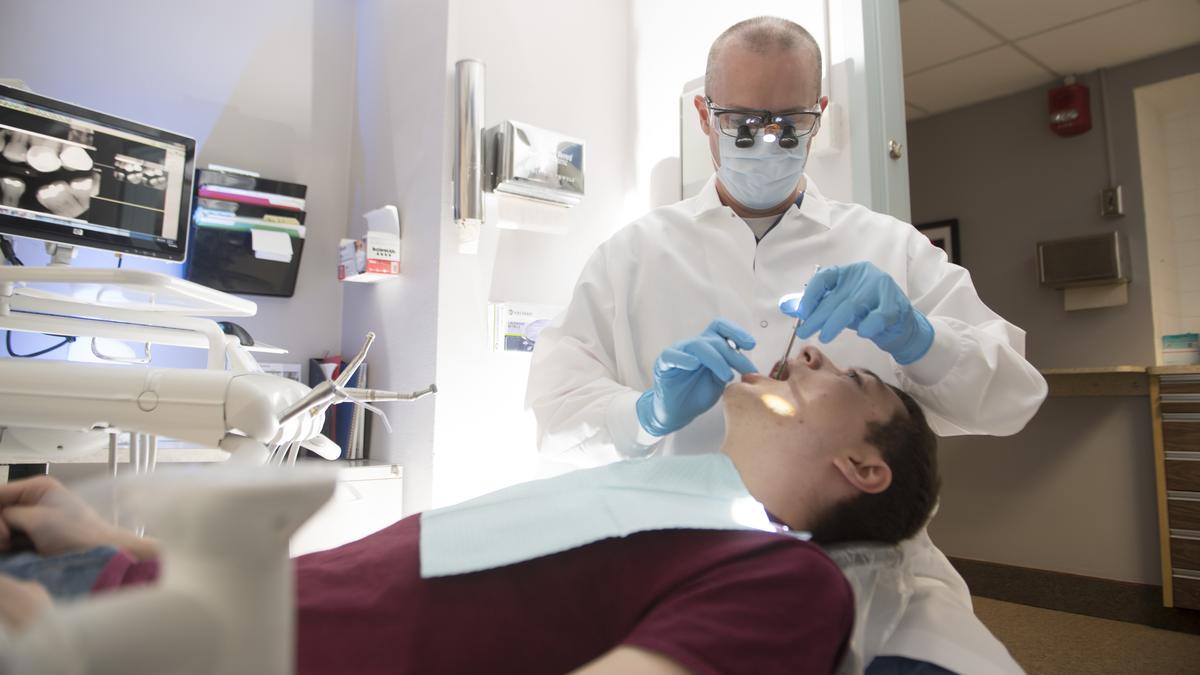
Oral Health Providers as HPV Vaccine Advocates
You may have heard your doctor or your teen’s doctor talk about the HPV vaccine. But have you ever heard your dentist talk about it? And since HPV infection is a leading cause of preventable head and neck cancer, why aren’t oral health care providers talking about it?
Jenny Oliphant, senior research associate and community outreach coordinator for the Healthy Youth Development – Prevention Research Center has teamed up with Dr. Eileen Crespo, vice president for medical services at Delta Dental, to educate oral health care providers on HPV and illustrate the significant role they can play in vaccine advocacy.
Dentists, hygienists, and those who work in the dental field, are the most common health care providers to identify early-stage head and neck cancers, yet they have largely been left out of prevention discussions regarding advocating for the HPV vaccination. It is a missed opportunity, borne primarily out of a lack of training in discussing the importance of the HPV vaccine to their adolescent patients and patients' parents.
“The involvement of oral health care providers in HPV vaccine advocacy is essential in eliminating head and neck cancers caused by HPV,” says Oliphant. “HPV vaccination rates in Minnesota lag far below the recommended 80% to achieve community protection, so we need to increase the ways we reach these young people.” Training oral health care providers about HPV and the HPV vaccine, in addition to making patient education about HPV a normal part of a routine oral health examination, could help to better inform patients and increase vaccination rates. “The more health care providers are talking about HPV and the vaccine, the better-informed patients are going to be and the more likely they are to get the vaccine,” says Crespo.
Educating Oral Health Care Providers
Crespo and Oliphant are working to educate oral health care providers and clinic staff about HPV and the HPV vaccine. As part of their efforts, they are working with young people to role play conversations that providers and clinic staff could have with their patients. “It’s important for dental professionals to be well educated and comfortable talking about the HPV vaccine so they are better able to explain it to their patients,” says Oliphant.
Oliphant and Crespo are excited about the results they have seen from their trainings thus far. Over 150 oral health care professionals have been trained using their HPV Vaccine Advocacy curriculum and they are seeing positive results. “What we found is that basic HPV information was deemed new and vital by most of the participants and most felt the opportunity to be trained on HPV was unique,” said Oliphant. Their qualitative evaluation also provided positive feedback from the trainings.
“HPV can cause oral cancer and it doesn’t have to be like (that); before, I don’t think I ever even thought about it causing oral cancer.” – Dentist.
“Right now, the HPV vaccine talk should be similar to how we talk to our patients about smoking or tobacco cessation.” – Dental Hygienist.
“Oral health professionals need basic, focused education on the role of HPV in developing head and neck cancers. Education should be provided so all oral health professionals can serve as a source of cancer prevention and vaccine advocacy in and outside the clinic,” say Crespo. Oliphant and Crespo also found that training increased self-reported knowledge and the likelihood of recommending HPV vaccination, including recommending it to family and friends. “With practice and reinforcement through clinic policies, oral health care professionals become more comfortable recommending the HPV vaccine and see it as part of their larger preventive role,” says Crespo.
Oliphant and Crespo are aiming to effect changes in practice and policy with their research. In addition to sharing their findings in the US, Oliphant and Crespo were recently invited to share their work at the 2023 Eurogin International Multidisciplinary HPV Congress, in Bilboa, Spain.
“Including oral health care providers as advocates for HPV vaccination will hopefully increase the vaccination rates or at the very least, increase knowledge about HPV and the vaccine,” says Oliphant. “If we can get young patients and adolescents vaccinated from HPV before they start becoming sexually active, we can greatly reduce the rate of infection and subsequently reduce the prevalence for head and neck cancers.”